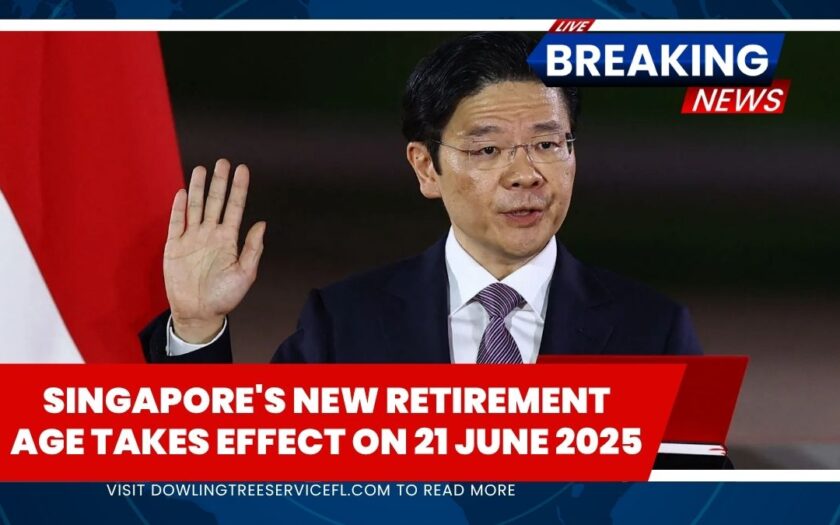Singapore’s approach to retirement aims to provide both financial security and flexibility for its citizens and permanent residents as they approach their golden years. By gradually raising the retirement age, the government is working towards maintaining a sustainable workforce.
Below, we explore the key updates on Singapore’s retirement age for 2025, including the increased retirement and re-employment ages, CPF contributions, and workplace flexibility.
New Retirement Age in Singapore for 2025 and Beyond
As of now, Singapore’s retirement age remains at 63 and will not be raised in 2025. However, significant changes are set to take place starting July 2026. The retirement age will rise from 63 to 64 years.
The changes go beyond just the retirement age. Singapore also plans to increase the re-employment age to 69 years by 2026 and further to 70 years by 2030. This gradual approach allows both employers and employees to adjust to the evolving demands of the workforce.
Impacts of the New Retirement Age Policy
While the increase in the retirement age will not take effect until 2026, its implications will be felt in the coming years. Here’s a breakdown of the impact on both employers and employees:
For Employers
- Expanded Talent Pool: Older workers staying in the workforce will offer businesses a chance to benefit from their experience, skills, and stability, especially in sectors facing a shortage of skilled workers.
- Workplace Adjustments: Businesses may need to adapt to the older workforce by adjusting policies and considering potential increases in salaries and healthcare costs.
For Employees
- Extended Earning Potential: The ability to work for additional years means employees can boost their savings for retirement, ensuring better financial security.
- Increased Flexibility: The new policy allows workers to continue working if they choose, whether for financial reasons or personal fulfillment.
- Challenges: Some older employees may face physical or mental limitations, potentially complicating their ability to work longer.
Will Retirement Amounts Change with the New Age Policy?
Despite the rise in the retirement age, the Central Provident Fund (CPF) withdrawal rules will remain unchanged. Individuals will still be required to set aside a specific retirement sum. However, the Enhanced Retirement Sum (ERS) limit will increase as part of the 2025 budget.
This change allows individuals to contribute more to their CPF through schemes such as the Retirement Sum Topping-Up Scheme, potentially resulting in higher payouts from CPF LIFE, a scheme that provides a lifelong income to retirees.
As the retirement age increases, it is critical for individuals to plan their finances carefully. It is essential to assess one’s financial goals, savings, and how much one expects to need in retirement.
Personalized planning based on lifestyle, future expenses, and desired quality of life will help ensure a comfortable retirement.
Singapore’s approach to raising the retirement age is designed to help ensure that its workforce remains both sustainable and adaptable.
While the adjustments may create challenges for both employers and employees, they also open up new opportunities for workers to extend their careers and increase their retirement savings.
The CPF system remains at the core of Singapore’s retirement planning. With increased contributions and enhanced retirement sums, individuals can bolster their savings for retirement.
As the government takes steps to adapt to an ageing population, those who wish to continue working will have the flexibility to do so, benefiting both themselves and the nation’s economy.
FAQs
What is the current retirement age in Singapore?
The current retirement age in Singapore is 63, but it is scheduled to rise to 64 in July 2026.
Will I be able to withdraw more money from my CPF after the retirement age is increased?
While the retirement age increase will not affect the CPF withdrawal age, the Enhanced Retirement Sum (ERS) will rise, allowing for higher contributions and potentially higher payouts from CPF LIFE.
How will these changes affect employers and employees?
Employers will benefit from a broader talent pool and increased stability, while employees will have more earning opportunities and flexibility to work longer, though some may face challenges due to age-related limitations.
